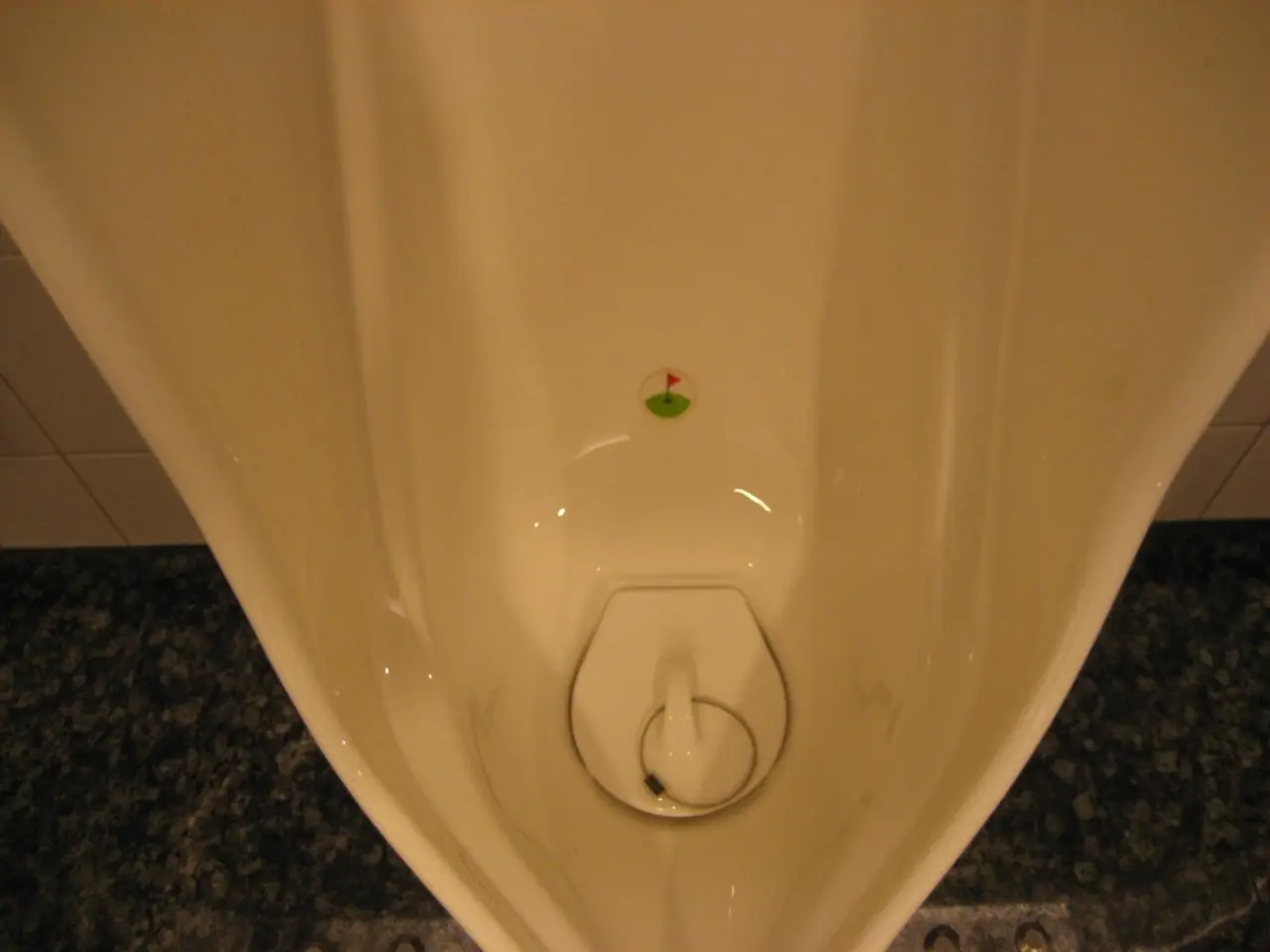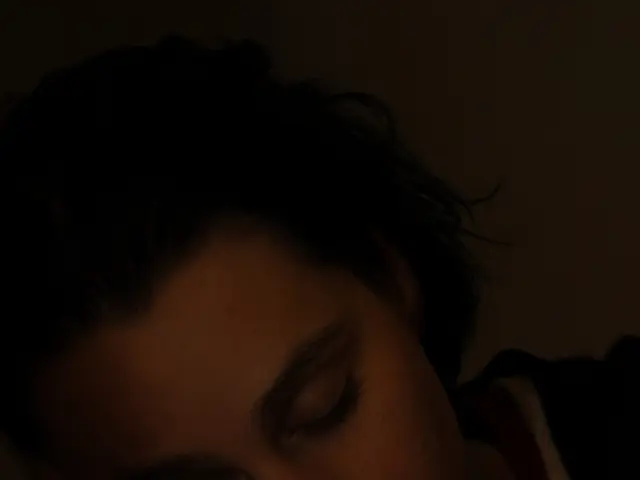Guidance on Solutions for Men Facing Urinary Troubles
Take a seat, buddy, let's talk about something that might get a little awkward but is important for your health – peeing troubles. As you get older, especially when you hit your 50s and beyond, you might find yourself struggling to pee or it becoming harder and harder.
Don't just suffer in silence, that's what Dr. Brad Gill, a top urologist, advises against. So, let's dive into the nitty-gritty details of the dreaded issue and figure out how to get back to a smooth, hassle-free life.
Prostate issues
The main culprit for peeing issues, especially in older men, is an enlarged prostate. The prostate gland, located right under your bladder, can grow over time and squeeze the channel leading to the urethra, making it even tighter. This results in difficulties passing urine.
An overgrown prostate can cause a collection of unpleasant symptoms, such as:
- A weak urine stream
- Straining to push urine out
- Difficulty getting the flow started
- Struggling to empty your bladder completely
- Dribbling after finishing up
- Frequent nighttime trips to the bathroom
- Being unable to urinate at all
Ignoring the situation and routinely filling up your bladder can lead to more frequent bathroom visits, incontinence, and even leakage or accidents.
What to do about trouble peeing
There's no way to completely prevent the growth of the prostate, but if you're experiencing urinary issues, there are plenty of options to help you get back on track.
Hydrate wisely
Stay hydrated by drinking fluids regularly, but remember this: the more fluids you drink, the more often you'll need to go, especially if they irritate your bladder. Limit your intake of drinks that may irritate your bladder, like caffeinated beverages and alcohol. Drink less fluids in the evening, especially before bedtime.
Don't hold it in
Use the bathroom regularly throughout the day. Don't delay trips to the bathroom, as your bladder is less patient than it used to be when you were younger. Aim to empty your bladder every two to three hours.
Practice the 'double void'
If you feel like you can't fully empty your bladder, try the 'double void' method. After you finish using the bathroom, wait 30 seconds to a minute and try to squeeze out a little bit more. This can help completely empty your bladder and give you more time before your next visit.
Revise your bedtime routine
Make sure the last thing you do before going to bed is use the bathroom. Emptying out before bed reduces the pressure on your bladder during the night and could help you sleep better.
Pay attention to your sleep routine, as frequent nighttime bathroom visits could indicate sleep apnea.
Skip supplements
Don't waste your money on supplements that claim to improve prostate health. Most of them have not been proven to be effective, and some may even lead to prostate problems.
The most important tip
Although these tips may help you cope with your problems urinating, they're no substitute for seeing a urologist if you're experiencing bothersome symptoms. Ignoring the issue could lead to potential health problems and even permanent damage to your kidneys. Addressing the problem early can prevent further complications and help you return to a more comfortable life.
Stay proactive, talk to your doctors, and let them help you improve the situation. Your urologist will determine the best course of treatment for you based on your individual circumstances. Remember, dealing with peeing problems isn't something to be embarrassed about – it's an issue that deserves attention and the care of a healthcare professional.
- Aging can lead to various health issues, such as difficulties with urination in older men due to an enlarged prostate.
- The prostate gland, located under the bladder, can grow over time and cause issues with urination.
- An overgrown prostate can cause symptoms like a weak urine stream, straining to push urine out, difficulty starting the flow, and struggling to empty the bladder completely.
- Prostate issues can lead to frequent bathroom visits, incontinence, and even accidents if ignored.
- Hydrating wisely can help with urinary problems, but limit irritating drinks like caffeinated beverages and alcohol.
- Don't hold in urine, use the bathroom regularly, and aim to empty the bladder every two to three hours.
- Practice the 'double void' method to completely empty the bladder.
- Revise your bedtime routine by ensuring the last thing before sleep is using the bathroom.
- Frequent nighttime bathroom visits could indicate sleep apnea, so pay attention to your sleep routine.
- Avoid supplements that claim to improve prostate health, as most are not proven effective and some may lead to problems.
- The most important tip is to see a urologist if experiencing bothersome symptoms, as ignoring the issue could lead to health problems and kidney damage.
- Early treatment can help prevent further complications and improve the quality of life.
- Stay proactive, talk to doctors, and let them help you address urinary problems.
- Dealing with peeing problems shouldn't be something to be embarrassed about – it's an issue that deserves attention and professional care.
- In addition to prostate health, maintaining overall health and wellness is essential, encompassing areas like sleep, nutrition, fitness, mental health, men's health, skin care, cardiovascular health, and more.








